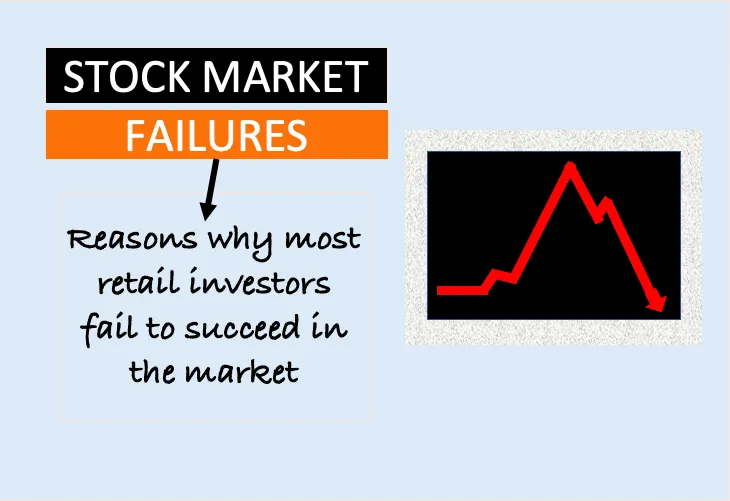
In the fast-paced world of investing, the stock market serves as a dynamic arena where fortunes can be made or lost in the blink of an eye. For many, the allure of striking it rich through astute investments is undeniable. However, success in the stock market is not guaranteed, and along the journey, there are bound to be both triumphs and setbacks. In this blog post, we delve into the intricacies of stock market success and failure, offering insights into what sets winners apart from losers in the ever-changing landscape of financial markets.
Understanding Stock Market Success: Achieving success in the stock market requires a combination of knowledge, skill, and discipline. Here are some key factors that contribute to success:
- Education and Research: Successful investors arm themselves with knowledge about the stock market, economic trends, and individual companies. Conducting thorough research and staying informed about market developments can provide a competitive edge.
- Strategy and Planning: Having a well-defined investment strategy and a clear plan is essential. Whether it’s value investing, growth investing, or a combination of strategies, investors need to identify their objectives, risk tolerance, and time horizon.
- Risk Management: Managing risk is paramount in the world of investing. Successful investors diversify their portfolios, set stop-loss orders, and adhere to strict risk management principles to protect their capital from significant losses.
- Emotional Discipline: Emotions such as fear and greed can cloud judgment and lead to irrational decision-making. Successful investors remain disciplined and stick to their investment plan, regardless of market fluctuations or external noise.
- Long-Term Perspective: While short-term gains can be enticing, successful investors often adopt a long-term perspective. They focus on fundamental factors and the intrinsic value of investments, rather than succumbing to short-term market volatility.

Recognizing Stock Market Failure: Despite best efforts, failure in the stock market is an unfortunate reality for many investors. Here are some common reasons why investors may experience failure:
- Lack of Research and Knowledge: Investing without adequate research or understanding of market fundamentals can lead to poor investment decisions and losses.
- Emotional Investing: Allowing emotions to dictate investment decisions, such as panic selling during market downturns or chasing after hot stocks, often leads to losses.
- Overleveraging: Taking on excessive leverage amplifies both gains and losses. Overleveraged positions can quickly wipe out investment capital if the market moves unfavorably.
- Lack of Discipline: Failing to adhere to a disciplined investment approach, such as abandoning investment strategies midway or ignoring risk management principles, can spell disaster for investors.
- Market Volatility: The stock market is inherently volatile, and unforeseen events or macroeconomic factors can trigger sharp declines in stock prices, leading to losses for investors.

Conclusion: In conclusion, success and failure in the stock market are two sides of the same coin, and navigating this complex landscape requires skill, knowledge, and discipline. While success is attainable for those who approach investing with a strategic mindset and a long-term perspective, failure can often be attributed to a lack of preparation, emotional decision-making, and poor risk management. By understanding the factors that contribute to both success and failure, investors can strive to improve their strategies, mitigate risks, and ultimately enhance their chances of achieving their financial goals in the stock market journey.





